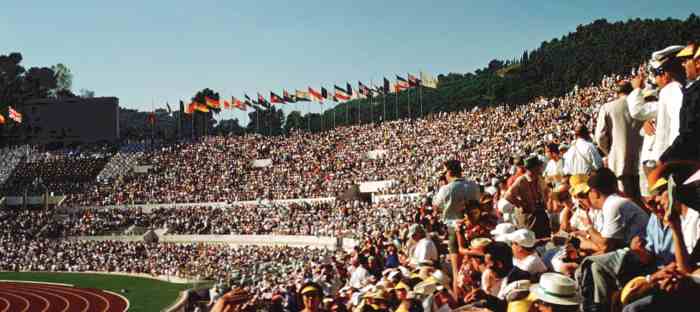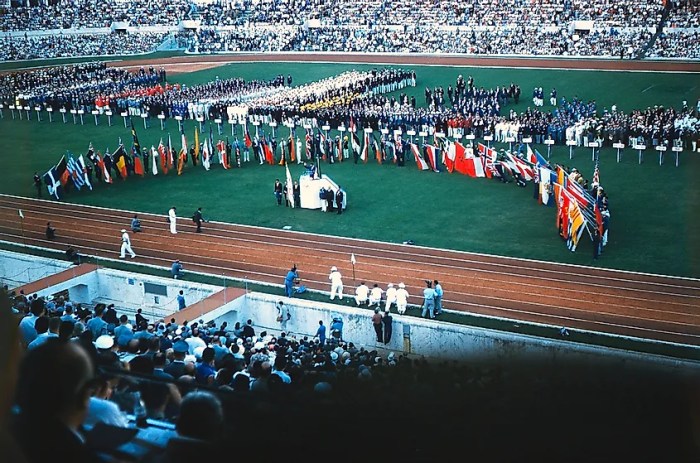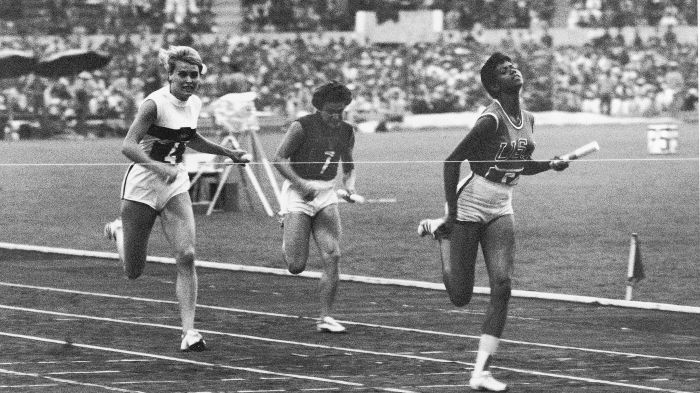Rome 1960 the olympics that changed the world – Delving into Rome 1960: The Olympics That Transformed the World, this exploration unveils the profound impact of these Games on global culture, technology, and society. From iconic sporting moments to enduring legacies, this examination delves into the historical significance and lasting influence of this pivotal event.
As the world stood amidst the tensions of the Cold War, Rome emerged as a symbol of unity and athleticism. The Games showcased groundbreaking technological advancements that revolutionized broadcasting and enhanced the athlete experience, leaving an indelible mark on the future of sports.
Historical Context of the 1960 Rome Olympics

The 1960 Rome Olympics were held amidst the Cold War, a period of heightened global tensions between the United States and the Soviet Union. The Games served as a platform for showcasing national pride and athletic prowess, reflecting the political rivalry between the two superpowers.
Significance of Rome as the Host City
Rome’s selection as the host city held historical significance. It marked the first time the Olympics returned to Italy since the inaugural Games in Athens in 1896. Rome’s rich cultural heritage and ancient history added a symbolic dimension to the event.
Organization and Planning
The 1960 Rome Olympics were meticulously planned and organized. The Italian government invested heavily in infrastructure, including the construction of the Olympic Village and the renovation of existing sports facilities. The Games were broadcast to over 100 countries, marking a significant advancement in the reach of the Olympics.
Technological Advancements and Innovations

The 1960 Rome Olympics witnessed several technological advancements that revolutionized the Games and sports broadcasting.
Television Broadcasting
The Olympics were broadcast live on television for the first time, reaching a global audience of millions. The use of multiple cameras and instant replays enhanced the viewing experience and brought the action closer to fans around the world.
Sports Equipment and Facilities
New technologies were also introduced in sports equipment and facilities. Synthetic running tracks, lightweight javelins, and aerodynamic cycling helmets improved athlete performance and safety. The construction of the iconic Foro Italico stadium complex provided a state-of-the-art venue for the Games.
Sporting Highlights and Memorable Moments: Rome 1960 The Olympics That Changed The World

The 1960 Rome Olympics produced numerous iconic sporting moments that left an enduring legacy in sports history.
Wilma Rudolph
American sprinter Wilma Rudolph overcame polio to win three gold medals in the 100-meter, 200-meter, and 4×100-meter relay. Her triumph symbolized perseverance and the power of the human spirit.
Abebe Bikila
Ethiopian marathon runner Abebe Bikila became the first sub-Saharan African to win an Olympic gold medal. His barefoot victory inspired athletes from around the world and shattered racial barriers in sports.
Cassius Clay
American boxer Cassius Clay, later known as Muhammad Ali, won the light heavyweight gold medal. His flamboyant style and outspoken personality foreshadowed his future dominance of the sport.
Cultural Impact and Legacy

The 1960 Rome Olympics had a profound impact on global culture and society.
Fashion and Music
The Olympics showcased the latest fashion trends, including the bikini and miniskirt. Italian fashion designers such as Emilio Pucci and Salvatore Ferragamo gained international recognition during the Games.
Arts and Architecture
The Olympics inspired artistic creations, including the iconic poster designed by Bruno Munari and the modernist architecture of the Olympic Village. The Games also sparked a renewed interest in ancient Roman culture.
Legacy on Rome, Rome 1960 the olympics that changed the world
The Olympics transformed Rome into a modern metropolis. The construction of new infrastructure and the influx of tourists boosted the city’s economy and international profile. The Foro Italico complex remains a major sports and cultural center in Rome.
Controversies and Challenges
Despite the overall success of the 1960 Rome Olympics, there were several controversies and challenges.
Doping Scandal
The Olympics were marred by a doping scandal involving Danish cyclist Knud Enemark Jensen. His death during the 100-kilometer team time trial raised concerns about the use of performance-enhancing drugs in sports.
Political Tensions
The Cold War tensions between the United States and the Soviet Union were evident during the Games. The Soviet Union protested the inclusion of Taiwan and South Africa in the Olympics, leading to boycotts by some countries.
Traffic and Pollution
The influx of tourists and athletes caused severe traffic congestion and air pollution in Rome. The city struggled to manage the transportation and environmental challenges posed by the Olympics.
FAQ
What was the significance of the 1960 Rome Olympics?
The 1960 Rome Olympics marked a turning point in Olympic history, showcasing technological advancements, fostering global unity, and leaving a lasting cultural impact.
How did the Cold War influence the 1960 Olympics?
The Cold War tensions were evident in the political dynamics of the Games, with the Soviet Union and the United States vying for athletic supremacy.
What were some of the most memorable sporting moments of the 1960 Olympics?
Iconic moments include Wilma Rudolph’s triple gold medal victory, Abebe Bikila’s barefoot marathon triumph, and Cassius Clay’s (later Muhammad Ali) gold medal win.